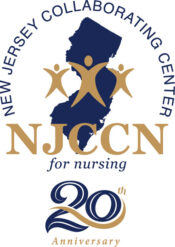Jul 1, 2014 | News Roundup
The following is the New Jersey Nursing Initiative (NJNI) weekly news roundup, highlighting nursing and health care stories from around the state.
New Era Begins for Long-Term Care in N.J. as Health Care Model Shifts (N.J. Spotlight)
July 1 marks a key moment in the transformation of long-term care in New Jersey, as the state shifts from a system that emphasized nursing homes toward one that gives more funding to home-based and community services. Under the Medicaid Managed Long-Term Supports and Services (MLTSS) program, New Jersey will no longer pay a fee for each individual long-term medical-related service residents receive. Instead, the state will pay managed care organizations a fixed amount to coordinate all of the health care and other long-term services. The managed-care program is the centerpiece of five-year Medicaid comprehensive waiver, which aims to save the state money while still improving services by focusing more on residents’ individual needs.
(more…)
Jun 24, 2014 | News Roundup
The following is the New Jersey Nursing Initiative (NJNI) weekly news roundup, highlighting nursing and health care stories from around the state.
Foundation’s Vision Expands Into More Holistic Approach to Healthcare (NJ Spotlight)
The nation’s largest health-focused foundation is touting a wider-ranging approach to public health, including initiatives to give people more access to fresh produce, encourage designs for “walkable” towns and cities, improve public parks and transportation, and provide people with better housing. Robert Wood Johnson Foundation is kicking off what it promises will be a decades-long effort to build what it calls a “Culture of Health” — and some of the leading voices for health and health care in New Jersey are embracing its vision. The “Culture of Health” approach will help the foundation determine how it disperses the $400 million in grants it awards annually. This will likely have significant consequences for New Jersey, where the foundation has historically made 10 percent of its contributions.
(more…)
Jun 17, 2014 | News Roundup
The following is the New Jersey Nursing Initiative (NJNI) weekly news roundup, highlighting nursing and health care stories from around the state.
Becton, Dickinson & Co. donates $1 million to Fairleigh Dickinson University (The Record)
Fairleigh Dickinson University has received $1 million from Franklin Lakes-based medical technology company Becton, Dickinson & Co. to bolster the university’s health-science education schools, according to a news release. Fairleigh Dickinson said the donation will support the renovation of science laboratories at its Metropolitan Campus, the construction of a training center at the university’s new school of pharmacy, and scholarships and graduate fellowships for economically disadvantaged nursing students.
(more…)
Jun 10, 2014 | News Roundup
The following is the New Jersey Nursing Initiative (NJNI) weekly news roundup, highlighting nursing and health care stories from around the state.
N.J. League for Nursing celebrates annual convention (Nurse.com)
At the 2014 New Jersey League for Nursing convention in Atlantic City, approximately 800 nurses and nursing students networked, connected with exhibitors and poster presenters, and attended continuing education sessions. The sessions covered clinical, academic, student, and professional issues. Among the topics were the power of forgiveness, music intervention in the periop setting, probiotics, organ and tissue donation, international service learning, and engagement.
(more…)
Jun 3, 2014 | News Roundup
The following is the New Jersey Nursing Initiative (NJNI) weekly news roundup, highlighting nursing and health care stories from around the state.
Health Care’s Challenge: Cut Costs but Still Meet Demands of Aging Populace (NJ Spotlight)
The focus in health care has shifted to finding ways to reduce costs while providing the best possible medical services. But other shifts–in demographics, and in the way those medical services are provided–may require doing something that usually drives up costs: hiring more people to meet the increasing health care needs of a more-insured, older population. Panelists at a recent conference suggested that finding efficiencies–such as having qualified but lower-salaried nurses performing tasks sometimes done by doctors–could be part of the answer.
(more…)
